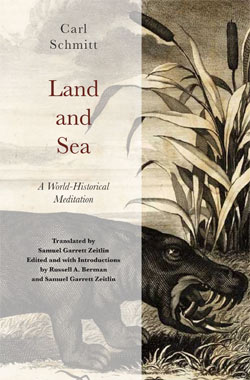“Fraternity means that the father no longer sacrifices the sons; instead the brothers kill one another. Wars between nations have been replaced by civil war. The great settling of accounts, first under national ‘pretexts,’ led to a rapidly escalating world civil war.”
—Ernst Jünger, Eumeswil
|
Most people think that the military is all about killing other people. I, on the contrary, follow van Creveld. He states that serving in the military means more to be prepared and willing to risk one’s life then to endanger other lives. You could argue that military technology provides tools that have kinetic effects over huge distances without any risk for one’s personnel. Drones, for example, are such weapons. However, can you win a war with only drones? We have relearned the lesson that it takes “boots on the ground” to win “the better peace,” as Clausewitz carefully worded it. It takes soldiers on the ground to control an area, to protect the population, to de-escalate a situation, and to win hearts and minds. Asymmetrical Warfare: Unconventional, nontraditional, or more precisely asymmetrical warfare has become the pervasive reality for the modern world. All realistic prognoses compellingly suggest it will remain so throughout the twenty-first century. The recent terrorist attacks in Paris and San Bernadino were no temporary aberration, or incidents of domestic political violence, but part of an increasingly normative pattern of asymmetrical warfare against the West. These events are inextricably related to the unconventional warfare and terrorism characterized by the conflicts extending from Afghanistan, Iraq, and Syria to Africa. Isis, al-Qaeda, and Boko Haram have become the common coinage of political discourse and news cycles. The controversy over the very terminology of the “War on Terror,” like that over the Obama Administration’s determination to close Guantanamo, illustrate the domestic as well as foreign policy implications of such developments. Meanwhile, Europe likewise faces both overt actions and indirect consequences of asymmetrical warfare. Russia’s proxy war in Ukraine and annexation of the Crimea, together with the massive Middle Eastern refugee influx, has thrust Europe into its own highly divisive disputes over its very cultural essence, political will, and future unity. Telos Press Publishing is pleased to announce that Carl Schmitt’s Land and Sea: A World-Historical Meditation is now available for purchase. Order your copy today in our online store.
Translated by Samuel Garrett Zeitlin Originally published in 1942, at the height of the Second World War, Land and Sea: A World-Historical Meditation recounts Carl Schmitt’s view of world history “as a history of the battle of sea powers against land powers and of land powers against sea powers.” Schmitt here unfolds his view of world history from the Peloponnesian War to European colonial expansion to the birth pangs of capitalism, while polemically setting Nazi Germany as a continental land power against Britain and the United States as its maritime enemies. In Land and Sea, Schmitt offers his interpretations of the rise of Venice, piracy, “corsair capitalism,” the spatial revolution of European colonial expansion, the rise of the British empire, and his readings of thinkers as diverse as Seneca, Shakespeare, Herman Melville, and Benjamin Disraeli. This new and authorized edition from Telos Press Publishing, translated by Samuel Garrett Zeitlin and edited by Russell A. Berman and Samuel Garrett Zeitlin, includes extensive textual annotations that compare critical variations between the original 1942 edition of Land and Sea and the subsequent editions published in 1954 and 1981. At the Great War Fiction blog, George Simmers reviews Ernst Jünger’s Sturm, now available from Telos Press. You can purchase your copy in our online store, and save 20% with the coupon code BOOKS20. The aftermath of the War on Terror rages on despite bipartisan assurances that “major combat operations are over” and that “the war is coming to a close.” This ongoing conflict has produced, and continues to produce, prodigious human casualties and economic hemorrhaging. Tim Luke’s words regarding September 11, 2001, are in many ways as timely today as they were nearly fourteen years ago. |
||||
|
Telos Press Publishing · PO Box 811 · Candor, NY 13743 · Phone: 212-228-6479 Privacy Policy · Data Protection Copyright © 2025 Telos Press Publishing · All Rights Reserved |
||||



